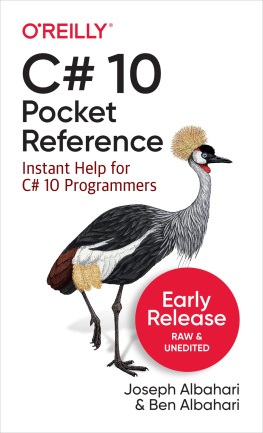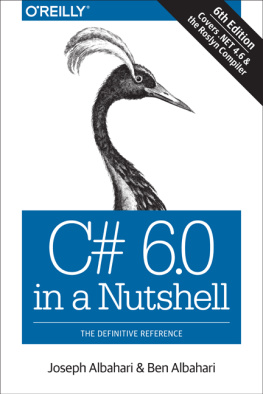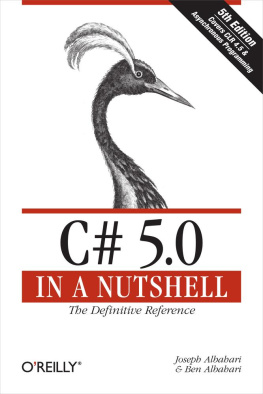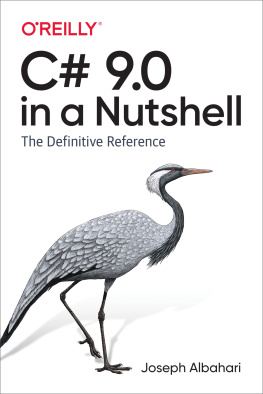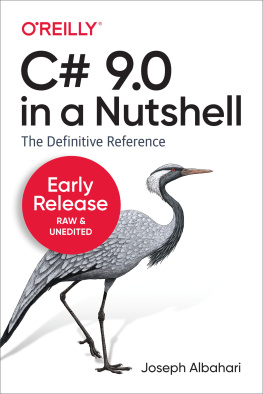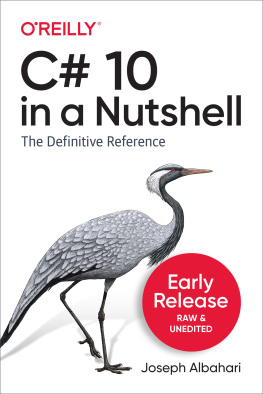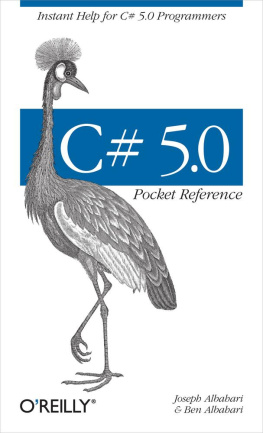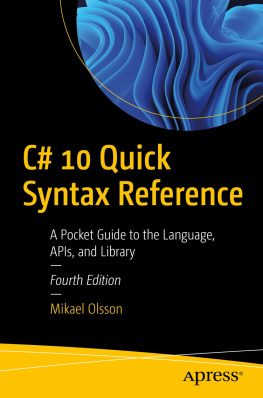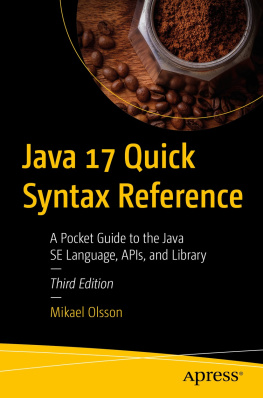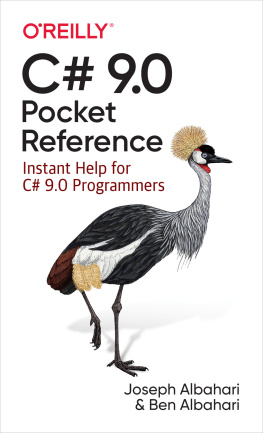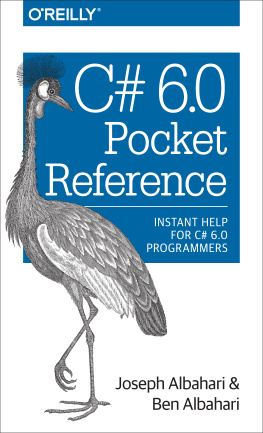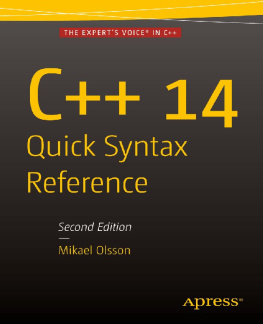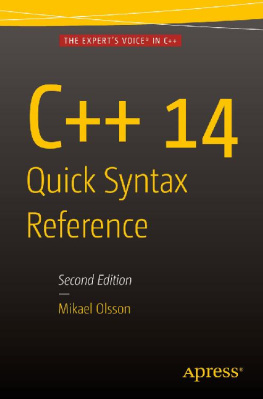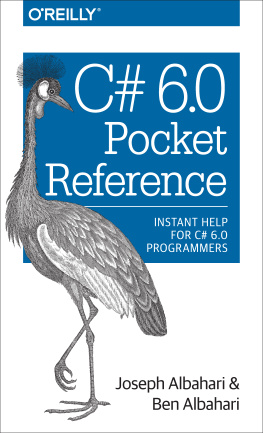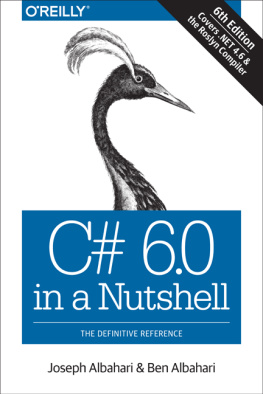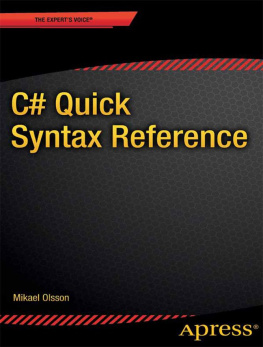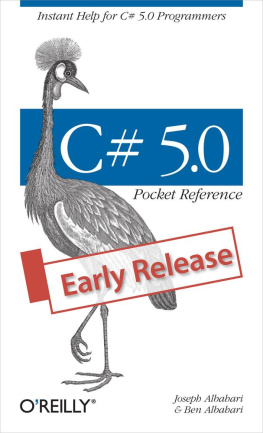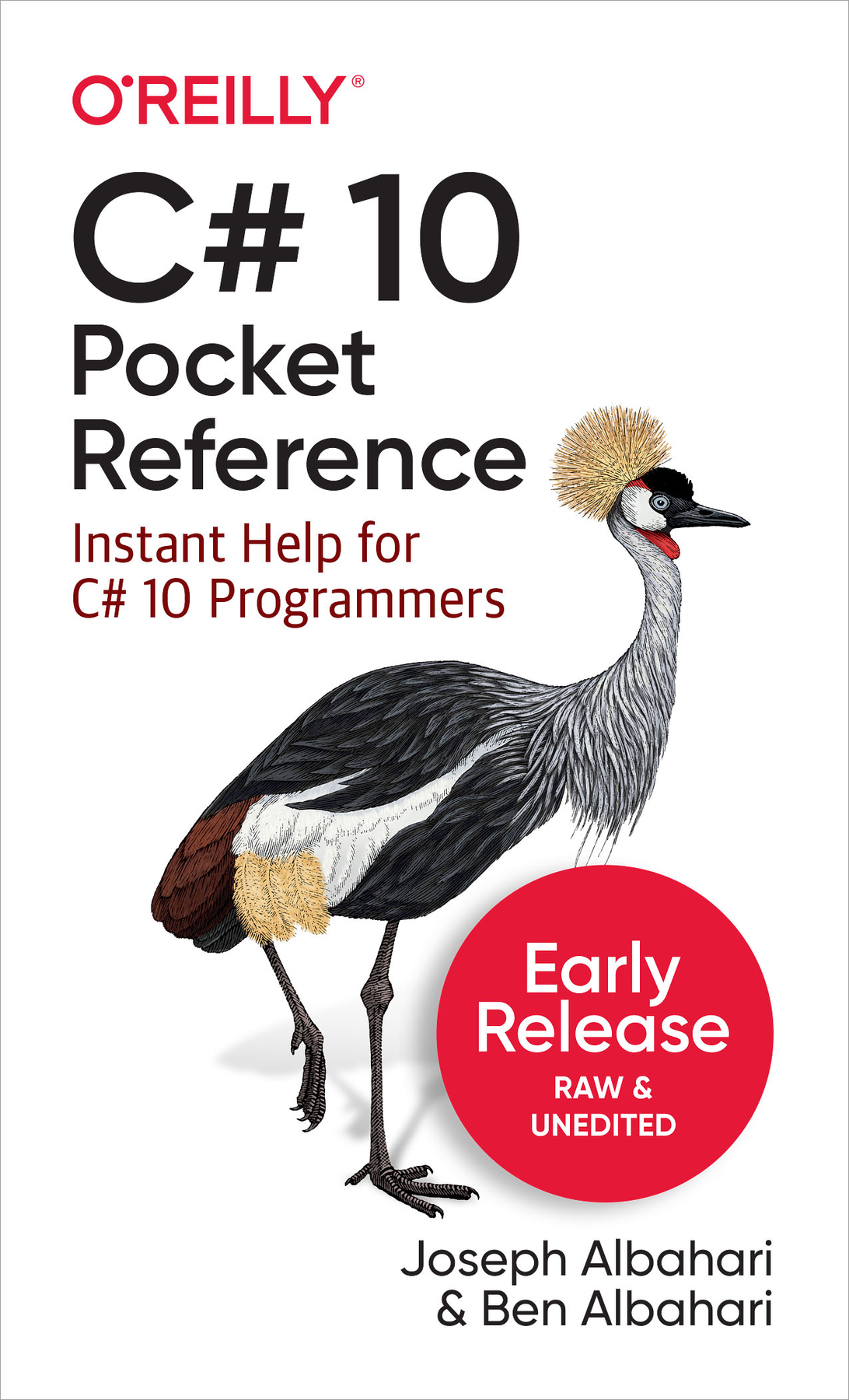Joseph Albahari - C# 10 Pocket Reference: Instant Help for C# 10 Programmers
Here you can read online Joseph Albahari - C# 10 Pocket Reference: Instant Help for C# 10 Programmers full text of the book (entire story) in english for free. Download pdf and epub, get meaning, cover and reviews about this ebook. year: 2022, publisher: OReilly Media, genre: Computer. Description of the work, (preface) as well as reviews are available. Best literature library LitArk.com created for fans of good reading and offers a wide selection of genres:
Romance novel
Science fiction
Adventure
Detective
Science
History
Home and family
Prose
Art
Politics
Computer
Non-fiction
Religion
Business
Children
Humor
Choose a favorite category and find really read worthwhile books. Enjoy immersion in the world of imagination, feel the emotions of the characters or learn something new for yourself, make an fascinating discovery.
- Book:C# 10 Pocket Reference: Instant Help for C# 10 Programmers
- Author:
- Publisher:OReilly Media
- Genre:
- Year:2022
- Rating:4 / 5
- Favourites:Add to favourites
- Your mark:
C# 10 Pocket Reference: Instant Help for C# 10 Programmers: summary, description and annotation
We offer to read an annotation, description, summary or preface (depends on what the author of the book "C# 10 Pocket Reference: Instant Help for C# 10 Programmers" wrote himself). If you haven't found the necessary information about the book — write in the comments, we will try to find it.
Looking for quick answers for using C# 10? This tightly focused and practical guide tells you exactly what you need to know without long intros or bloated samples. Succinct and easy to browse, this pocket reference is an ideal quick source of information. If you know Java, C++, or an earlier C# version, this guide will help you get rapidly up to speed.
All programs and code snippets are available as interactive samples in LINQPad. You can edit these samples and instantly see the results without needing to set up projects in Visual Studio. Written by the authors of C# 9.0 in a Nutshell, this pocket reference covers:
- C# fundamentals and features new to C# 10
- Advanced topics like operator overloading, type constraints, nullable types, operator lifting, closures, patterns, and asynchronous functions
- LINQ: sequences, lazy execution, standard query operators, and query expressions
- Unsafe code and pointers, custom attributes, preprocessor directives, and XML documentation
Joseph Albahari: author's other books
Who wrote C# 10 Pocket Reference: Instant Help for C# 10 Programmers? Find out the surname, the name of the author of the book and a list of all author's works by series.

